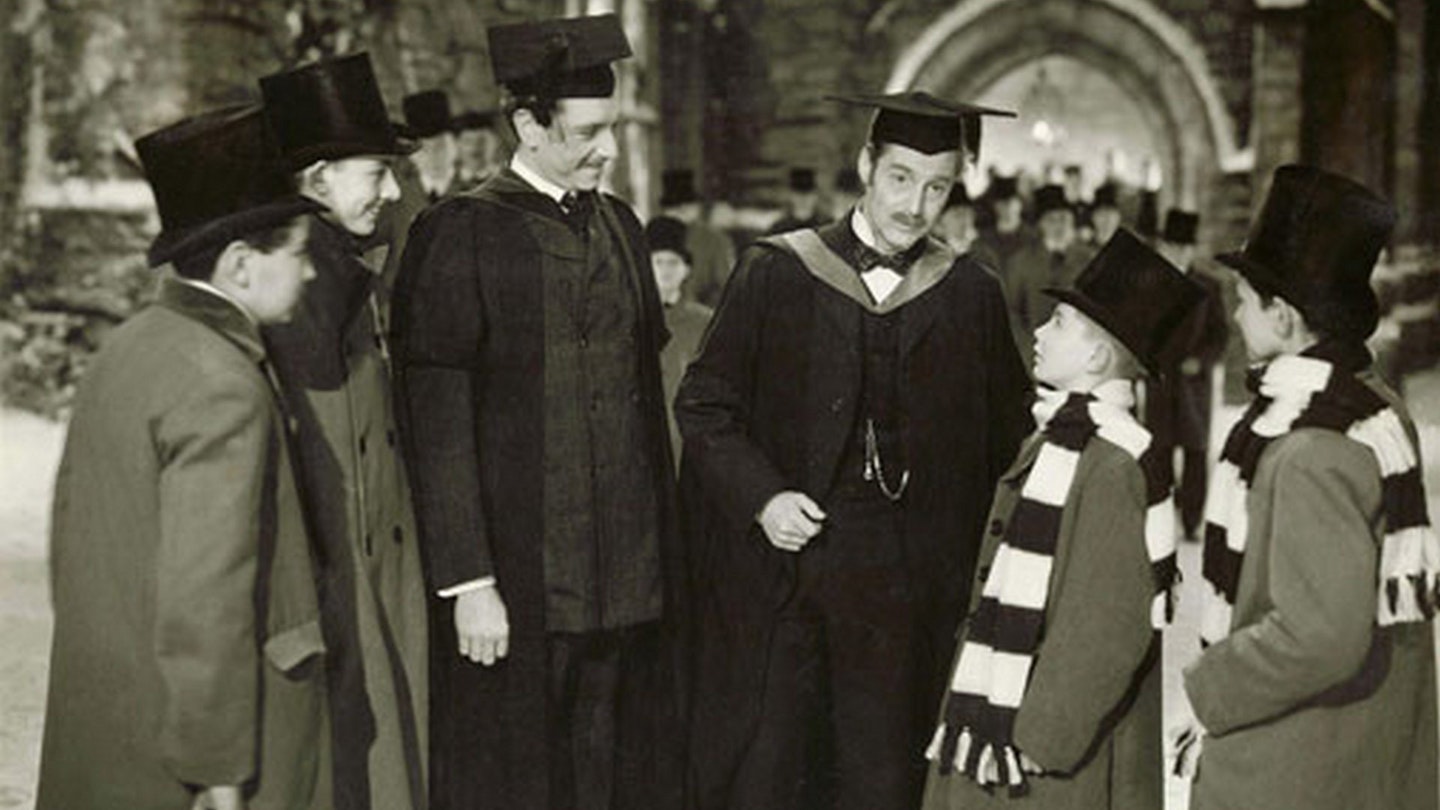Inheriting a role initially destined for Charles Laughton, Robert Donat gave the performance of his career in this charming evocation of life in an English public school. Modelling his voice and mannerisms on his wife's uncle, the distinguished architect C.F.A. Voysey, Donat overcame his chronic asthma to beat Clark Gable to Best Actor in the year that Gone With the Wind swept the Academy Awards.
The debuting Greer Garson was also nominated for her delightful display as Katherine Ellis, whom Chips meets while walking in the Austrian Alps with his colleague Max Staefel (Paul Henreid, who was billed as Von Henreid in his first English-speaking role) and who brings the old bachelor out of himself to earn the undying affection of his charges.
James Hilton wrote the original novella in just four days to meet a magazine deadline. Although some have claimed its inspiration was his own schoolmaster father, the model for Mr Chips seems to have been one W.H. Balgarnie, who taught Hilton at a private school near Cambridge. The story became popular after literary critic Alexander Woollcott championed it on his radio show and it was snapped up by MGM for production at its UK studio at Borehamwood (although Repton stood in for Brookfield, with several teachers and pupils serving as extras).
The estimable R.C. Sheriff was among those who worked on the screenplay, which not only conveys the school's spirit, but also the intrusion of real life upon an essentially enclosed community. The sequences in which the boys and masters first meet Katherine are very sweet, while Chips's mourning for both his late wife and the alumni lost in the Great War is deeply affecting, yet as admirably unsentimental as his own deathbed scene.
MGM remade the movie as a musical in 1969. Peter O'Toole landed an Oscar nomination for his efforts in the title role and Petula Clark worked hard as Katherine. But Leslie Bricusse's mediocre songs are largely redudant and the debuting Herbert Ross's direction falls into every trap that Sam Wood's had so scrupulously avoided.
